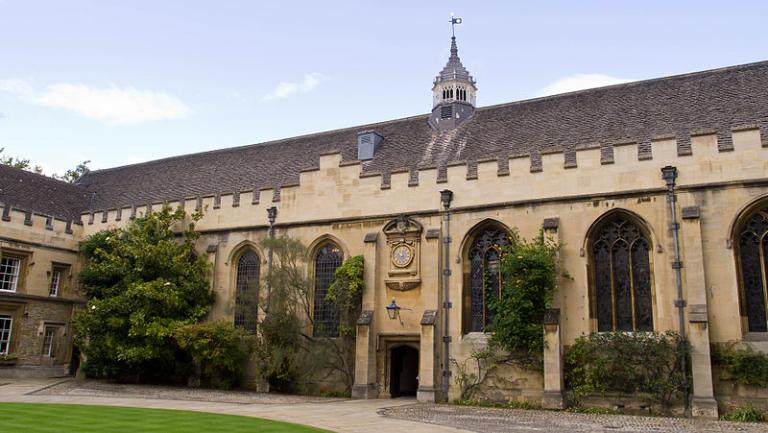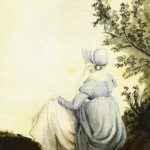
For a long time, I thought of the history of England, Scotland, and Wales as their history, the history of a foreign country or countries. And, of course, in a very real and obvious sense it is the history of foreign places, relative to me. In another sense, though, it is my own history. Elements of my maternal family lines first appeared in the New World in the late 1600s; most are much more recent than that. In other words, prior to the second half of the nineteenth century most of my maternal ancestry was living in what is now the United Kingdom. Robert the Bruce, Edward II, Richard III, Henry VIII, Mary Queen of Scots, “Bloody Mary,” Elizabeth I, James I of England (aka James VI of Scotland), William and Mary, and even Queen Victoria were their monarchs, not rulers of some distant foreign land. The subjects of those kings and queens are just as much my progenitors as they are of modern Brits. Shakespeare wasn’t merely the fellow countryman of the ancestors of today’s British, he was the fellow countryman of my maternal forebears, too. In fact, astonishingly, I seem to have ancestors buried just a few feet away from the Bard’s tomb in Stratford-upon-Avon’s Holy Trinity Church. They were contemporaries of his, and they seem to have known him or, at least, to have been aware of them: One of their sons bore the personal name Shakespeare, while a second bore the name Hamlet. Thus, while I’m open to the possibility that Stratford’s Will Shakespeare wasn’t actually the author of the sonnets and the plays — my recently departed sister-in-law was an ardent “Oxfordian,” believing that the actual writer of “the Works” was Edward de Vere, the seventeenth earl of Oxford, who simply used the actor Will Shakespeare as a front for his playwriting — I actually have a personal stake in Shakespeare being the real author: He may represent my family line’s one real chance at a brush with greatness.
Incidentally, while visiting Stratford a week or two ago, the plot of a far-fetched murder mystery occurred to me. I’ll never write it, so I offer it to the world: Somebody appears — make it, if you will, a member of the faculty at nearby Oxford University — who is about to publish definitive proof that it was, say, Edward de Vere who wrote Hamlet and King Lear and Othello and A Midsummer Night’s Dream and The Tempest and The Merchant of Venice and Romeo and Juliet and and Macbeth and Sonnet 29 and all the rest — just beginning to list such works puts me in renewed awe of their sheer genius! — rather than William Shakespeare. Shortly before publication of her evidence is to have occurred, though, she is murdered and her ostensible evidence disappears. An investigation is launched to solve the mystery of the homicide. Who done it? The Stratford Chamber of Commerce, of course! Plenty of motive. What would the city become if Shakespeare and his wife, Anne Hathaway, were to be regarded as mere ordinary mortals?

(Wikimedia Commons)
A complete change of pace: Many years ago, there was a period when my speaking engagements on behalf of the old FARMS — the Foundation for Ancient Research and Mormon Studies, predecessor to the Neal A. Maxwell Institute for Religious Scholarship and, organizationally, to BYU’s new-direction Maxwell Institute — got a bit out of hand. I was being sent out at least once a month, often to one of the coasts and, once or twice, first to one coast and then immediately, on the same weekend, to the other coast, to speak to sometimes rather small groups. It was wreaking havoc with my family and with my personal academic work.
On one such occasion, the father of the woman who had organized a fireside in a middle-sized eastern city at which I was to speak picked me up at the local airport. As it happened, she wasn’t even in town, the fireside had received virtually no publicity (and only about thirty people showed up when it happened), and her father plainly resented being obliged to take time to deal with me. (It was right after this trip that I finally put my foot down. I didn’t want to be a prima donna, I said, but I was also tired of flying across the continent sometimes twice a month in order to speak to only politely-interested groups of two or three dozen.)
Anyway, the fellow who fetched me at the airport was distinctly sullen about having to do so as we drove the considerable distance to where I would be staying. But I’ve always remembered that drive quite positively. Why? Because, for some reason or another, the topic of near-death experiences came up. (I can’t for the life of me remember how or why.)
I’ve had one of those, he said. I replied, Tell me about it!
Here’s a paraphrase of his account:
Once, in his late teens, he was driving at night along one of the densely forested rural roads in that state. Suddenly, without warning, he was t-boned at an intersection and found himself floating a least a hundred feet above the accident, looking down on the two vehicles.
From his vantage point above the tree tops, he saw the flashing lights of police cars and an ambulance coming from a distance toward the scene of the accident. He watched as the medics worked on his body, trying to revive him. He tried to tell them not to worry, that he felt perfectly fine — better, in fact, than he could ever remember feeling before. But he couldn’t make himself seen or heard. Then, without warning, he felt himself reenter his body and, he recalled, “it hurt like hell.”
That story has stayed with me for years. It’s astonishing how often, when the subject of near-death experiences comes up, someone in the group will say that she or somebody close to her has had one.
Anyway, with that as a lengthy preface, you’ll understand why this story, which I read a while back, struck me:
A young man lost control of his car during an evening snow storm. He crashed and left his body as icy-cold water began to flow into the vehicle he had been driving.
I saw the ambulance coming, and I saw the people trying to help me, get me out of the car and to the hospital. At that time I was no longer in my body. I had left my body. I was probably a hundred or two hundred feet up and to the south of the accident, and I felt the warmth and the kindness of the people trying to help me. (Reported in Nancy Evans Bush, Dancing Past the Dark: Distressing Near-Death Experiences [n.p.: Nancy Evans Bush, 2012].)
Posted from London, England













